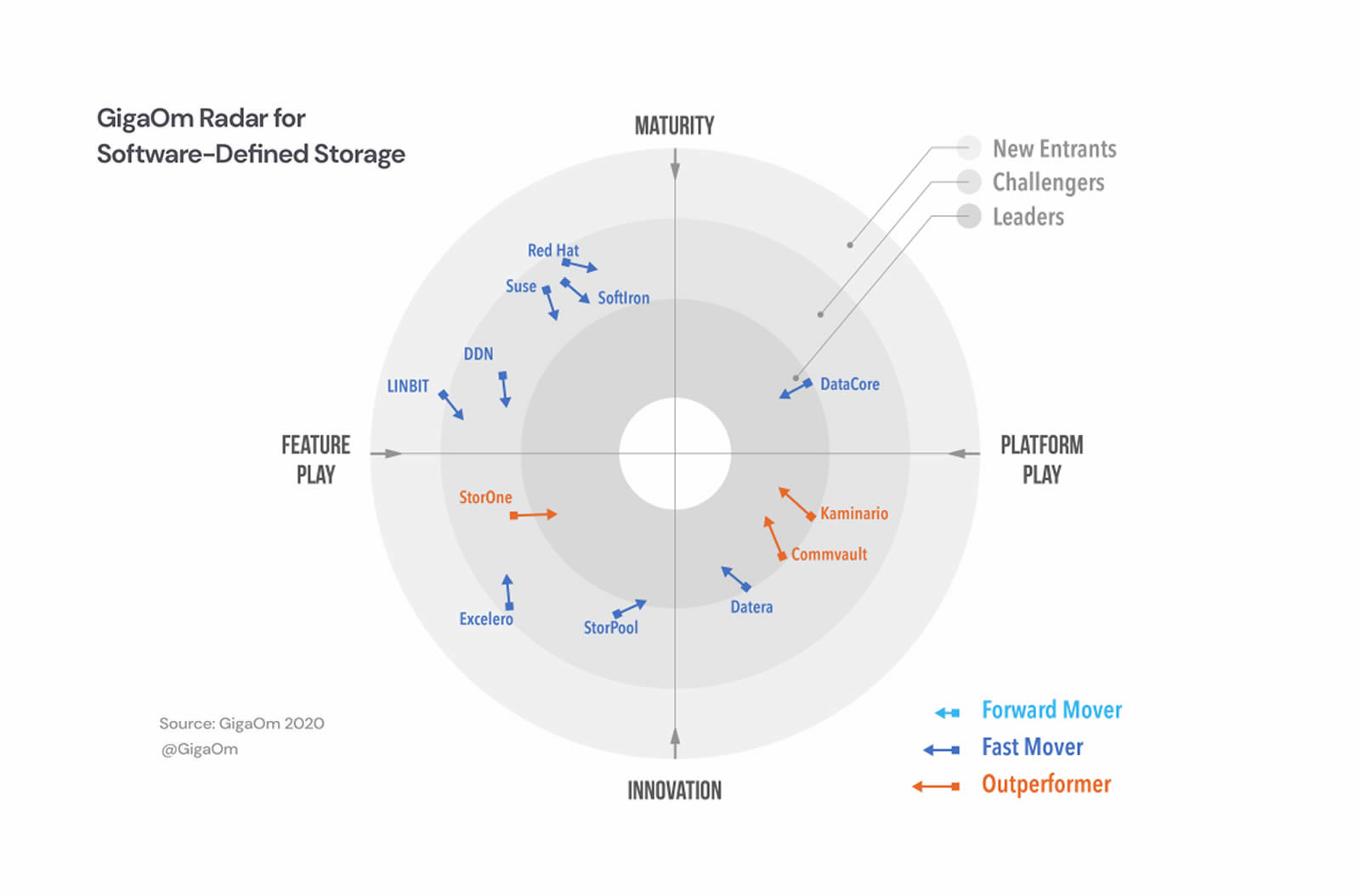DevOps-driven infrastructure
As a DevOps engineer, you want to dynamically provision persistent storage with self-service access using your existing Kubernetes workflows.
Simple, right? Not quite.
- Storage requirements differ by application. Traditional storage arrays apply storage services (e.g., deduplication, encryption) across the entire array instead of at the application level.
- Many cloud-native storage solutions are limited to container-only environments. Since most orgs have traditional and cloud-native solutions, this increases complexity and limits flexibility.
- You aren’t interested in vendor-specific tools. You want a programmable infrastructure that integrates with your existing tools (K8s, Git) to optimize productivity.
Building containerized applications with stateful and stateless data
Commvault provides cloud-native, software-defined distributed storage that integrates natively with K8s via CSI to deliver:
Application-centric storage
Turn on and off capabilities at the application level. For example, enable deduplication for one app (e.g., files) but disable it for another (e.g., medical images). This gives you more flexibility than traditional arrays or container-specific solutions.
Programmable infrastructure
Integration with your current workflows, CI/CD systems, and GitOps practices via APIs and CSI allows you to use kubectl and YAML manifests to define StorageClasses, provision storage, schedule snapshots, and migrate applications.
Scalability anywhere
Distributed storage that naively integrates with K8s and Git enables you to create next generation storage building blocks for modern applications regardless of where the applications live across your hybrid multi-cloud environment.

Commvault was recognized as a ‘Leader’ and ‘Outperformer’ in the GigaOm Radar for Software-Defined Storage based on its scalable and modern architecture, ease of use, and comprehensive set of API, CLI, and webUI interfaces
“Select storage solutions that exhibit hardware-agnosticism, are API-driven, have distributed architectures, and support on-premises, edge and public cloud deployments.”
Gartner — ‘Best Practices for Running Containers and Kubernetes in Production’
4 Aug 2020. ID G00730344

Making data instantly available across locations
There are two types of modernized applications: those that are distributed across locations and those that will be in the future. With legacy storage, you’re bound by physics when trying to move data across sites. You must perform snapshots and restores to physically move the data, which is expensive and time consuming.
With software-defined distributed storage, data is written to multiple sites (on-prem and cloud) simultaneously. This significantly improves portability and performance ensuring you’re ready for modern applications today. Simply fire up the application in your desired location and the data is already there! Change block tracking ensures the data sets are always aligned and network performance is optimized. No other competitive solution can do this.
The competitive difference
Competitive storage solutions
Commvault software-defined distributed storage
Container-only storage – If this storage cluster goes down, so does the storage associated with it and you lose your persistent data. You must provision new storage, new software, and reconfigure your K8s cluster.
Commvault storage can run inside or outside a containerized environment, ensuring you don’t lose your data if something happens to the cluster. Plus, you can map multiple K8s clusters to a single Commvault cluster to maximize TCO.
Traditional storage — Most traditional arrays don’t support cloud-native containerized environments, forcing you to have separate solutions for modern and legacy workloads. This increases complexity.
Commvault supports traditional and modern storage solutions allowing you to deploy applications across locations (edge, cloud, data center)
OpenSource storage — The OpenSource community and CNCF continue to develop and integrate new storage solutions that can be used for your next DevOps project.
Commvault provides enterprise-grade features with the ability to protect your business today vs. a future add-on capability.
DevOps and beyond
Commvault software-defined distributed storage enables you to securely store, replicate, and migrate your container workloads across hybrid multi-cloud environments while making data instantly available across locations. The distributed architecture simplifies application portability and gives you a single modern storage building block to support your application modernization efforts.